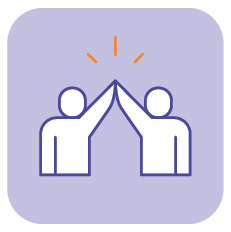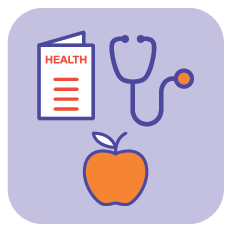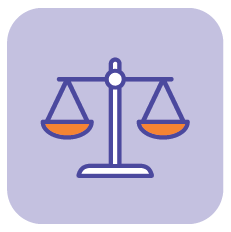Mission
Align three overarching strategies in statewide public health practices to more effectively involve community health workers (CHWs):
- Train CHWs to ensure comprehensive acquisition and reinforcement of relevant knowledge, roles, and skills to support the COVID-19 public health response and to manage outbreaks and community spread;
- Deploy CHWs to support the COVID-19 public health response to manage outbreaks and spread of COVID-19 among priority populations within communities; and
- Engage CHWs to help build and strengthen community resilience to mitigate the impact of COVID-19 and other emergent public health threats and priorities by improving the overall health of priority populations within communities.
What we do
- Align and facilitate the coordination of efforts among public health topics and programs as it relates to Community Health Workers (CHWs).
- Integrate a health equity focus within our priorities and strategies.
- Focus on key topic areas, including: COVID-19 response activities; Public health essential skills; Building community resiliency for emergency preparedness and response; Workforce development; Health systems change; Professional development, training, and support; Development of culturally competent materials; Promoting vaccine access and confidence; Disease prevention; Healthcare access; Health equity; and addressing social determinants of health.
- Administer the Community Health Workers for COVID Response and Resilient Communities (CDC-RFA-DP21-2109) grant in Rhode Island. In 2021, the Rhode Island Department of Health received a competitive grant award from the US Centers for Disease Control and Prevention (CDC) to train, deploy and engage community health workers throughout the State of Rhode Island. Within RIDOH, the Community Health Worker Program oversees the fulfillment of all CCR Grant-related initiatives and State requirements. RIDOH is implementing grant-deliverables by working with community-based organizations and agencies located throughout Rhode Island. Click here for more CDC information.
CHW Success Stories
Charting a Roadmap for Community Health Workers (CHWs) in Rhode Island
Since early 2023, RIDOH and the statewide CHW Strategy Team worked in partnership with WE in the World to hear from many CHW voices and partners to develop and co-design a Rhode Island Community Health Worker Roadmap. Through this process, more than 140 CHWs, partners, allies, and other stakeholders within the State of Rhode Island were engaged throughout all aspects of this project to: Design the process; Develop definitions and key principles; Review local and national strategies for advancing CHWs to become sustainable; Identified points of convergence, divergence, and clarity that are needed to build a roadmap; Bring together and convene design sessions; Engage workgroups of the CHW Strategy team in key areas of the Roadmap; Interview key agencies across sectors to identify potential implementation opportunities; Identify feasibility, implementation, assets, and timelines with the CHW Strategy Team; Share initial results at the Community Health Workers Association of Rhode Island (CHWARI) CHW Conference; and share final recommendations at the CHW Strategy Team. View the final report, titled "Charting a Roadmap for Community Health Workers in Rhode Island," here.
Establishing a Lead CHW Role to Advance Health Equity in Rhode Island

Through a grant award from the Centers for Disease Control and Prevention (CDC), RIDOH’s new CHW Program established a lead Community Health Worker (CHW) consultant role to facilitate activities among CHWs within the statewide Rhode to Equity (R2E) Initiative. The goal of the consultant role was to create more leadership opportunities for CHWs and to involve CHWs in R2E program development, implementation, and evaluation.
This Lead CHW role also supported the values of partnership and self-determination for CHWs in RIDOH’s workforce development goals. Since March 2022, Swanette Salazar, a certified CHW, has served in this new position, bringing to the role more than 10 years of experience as a CHW as well as the expertise as a self-identified person with lived experience of health inequities.
Salazar quickly became a key member of the leadership team by identifying CHW training needs and resources for R2E team projects, providing support and technical assistance to CHWs, and collaborating on evaluations. RIDOH plans to continue to involve the Lead CHW consultant in all planning and design activities associated with its national CHW grant award, in addition to evaluation activities. MORE
Despite Pandemic Obstacles, CHWARI Expedites CHW CORE Trainings for Rapid Impact

In the spring and summer of 2022, the Community Health Worker Association of RI (CHWARI) overcame COVID-19 workforce development challenges and fiscal constraints to successfully recruit and train 89 CHWs in Core classes to help support pandemic response efforts in Rhode Island, to address health disparities, and to build community resiliency under the RIDOH CDC CHW CCR grant award to the State.
Pandemic-era operational, recruitment, and staffing challenges had significantly delayed implementation plans for launching five new CHW Core training cohorts within the project deadline at CHWARI. However, through innovative staffing and scheduling policy solutions, CHWARI was able to expedite Core trainings for 89 new CHWs over just five months.
Following this successful effort, CHWARI planned to assess trainees’ feedback from the CHW training curriculum and make revisions as needed. Facilitators plan to continue to integrate CHWs’ perspectives and lived experiences while adjusting course curricula, especially for a newer CHW Supervisor training course. For ex-ample, that curriculum will place greater emphasis on the voices of CHWs as subject matter experts and reference systemic racism and classism in employment, according to CHWARI. CHWARI also planned to strengthen administrative support for training delivery and tracking, and more. MORE
How a Provider-CHW Partnership Linked Hundreds of Patients to Health Insurance

In 2022, Jenks Park Pediatrics in Central Falls had identified more than 600 uninsured patients (ages birth-18) who were without health insurance and access to regular pediatric care. However, with a certified CHW newly integrated onto the practice’s healthcare team who was skilled in social services applications, Dr. Beata F. Nelken, MD had recognized the opportunity for the practice to address multiple Social Determinants of Health by linking local families to both nutrition assistance and to routine and preventative medical care.
Under a new federal law, a new Supplemental Nutritional Assistance Program (SNAP) special enrollment period had enabled nutrition program beneficiaries to be co-eligible to enroll in affordable health insurance benefits through HealthSource RI. Centrally located in City of Central Falls, Jenks Park Pediatrics had opened during the 2020 COVID pandemic response and had helped conduct COVID-19 community testing with partners such as RIDOH, the Pawtucket-Central Falls Health Equity Zone (HEZ), Family Services-RI, RI Local Initiatives Support Corporation (RI-LISC), and Progreso Latino. Together these partners had also been communicating with each other to address "wrap-around support needs" such as food security, housing, access to healthcare, and others.
Dr. Nelken proposed that Family Services-RI’s onsite certified CHW who was working at the practice instead shift her focus to solely enrolling the more than 600 uninsured patients in both the SNAP and health insurance benefits before the special open enrollment period closed in the coming months. In a race against time, the CHW specialist who was bilingual in English and Spanish worked onsite at Jenks Park Pediatrics and in community settings to contact individuals and families by phone, educate people about the programs, and assist them with their enrollment applications. Given the CHW’s unique training and expertise, the CHW also trained other pediatric medical staff on the processes. Working together, the larger integrated healthcare team was on track to achieve its target goals by end of the enrollment period at the end of 2022. MORE
MLPB Legal Education and Problem-Solving Support for Rhode Island’s Community Health Workforce (Oct. 1, 2022 – April 31, 2023)

In 2021 as CHWs were integrated into multiple organizational and care teams through the statewide Rhode to Equity collaborative, new training were developed to support CHWs who were helping to manage COVID-19 among populations with more acute vulnerability. As part of this effort, legal training consultants from the MLPB (formerly branded as Medical Legal Partnership | Boston) worked with the Care Transformation Collaborative of Rhode Island (CTC-RI), RIDOH, and the Community Health Worker Association of Rhode Island (CHWARI) to offer needs-based legal trainings for CHWs and to engage CHWs in the planning process.
Under Rhode Island’s federal CHW CCR grant award, RIDOH was able to introduce CHWs onto statewide R2E healthcare teams, while those R2E community-level connections connected CHWs in need to MLPB’s needs assessment survey, trainings, and consultation services.
MLPB’s Unlocking Access virtual trainings provided partners with legal information that supports effective social care and explains historical and contemporary drivers of health inequities. In addition to customized trainings, CHWs were also invited to join virtual trainings designed for Rhode Island CHWs, such as “Maximizing Tax Benefits” and “Policy Advocacy”. MLPB’s Unlocking Access Hub also offered access to more training recordings and companion reference content to support CHWs’ legal education and problem-solving skills.
More than 100 workforce members affiliated with this project enrolled, including CHWs and Rhode to Equity team members.
